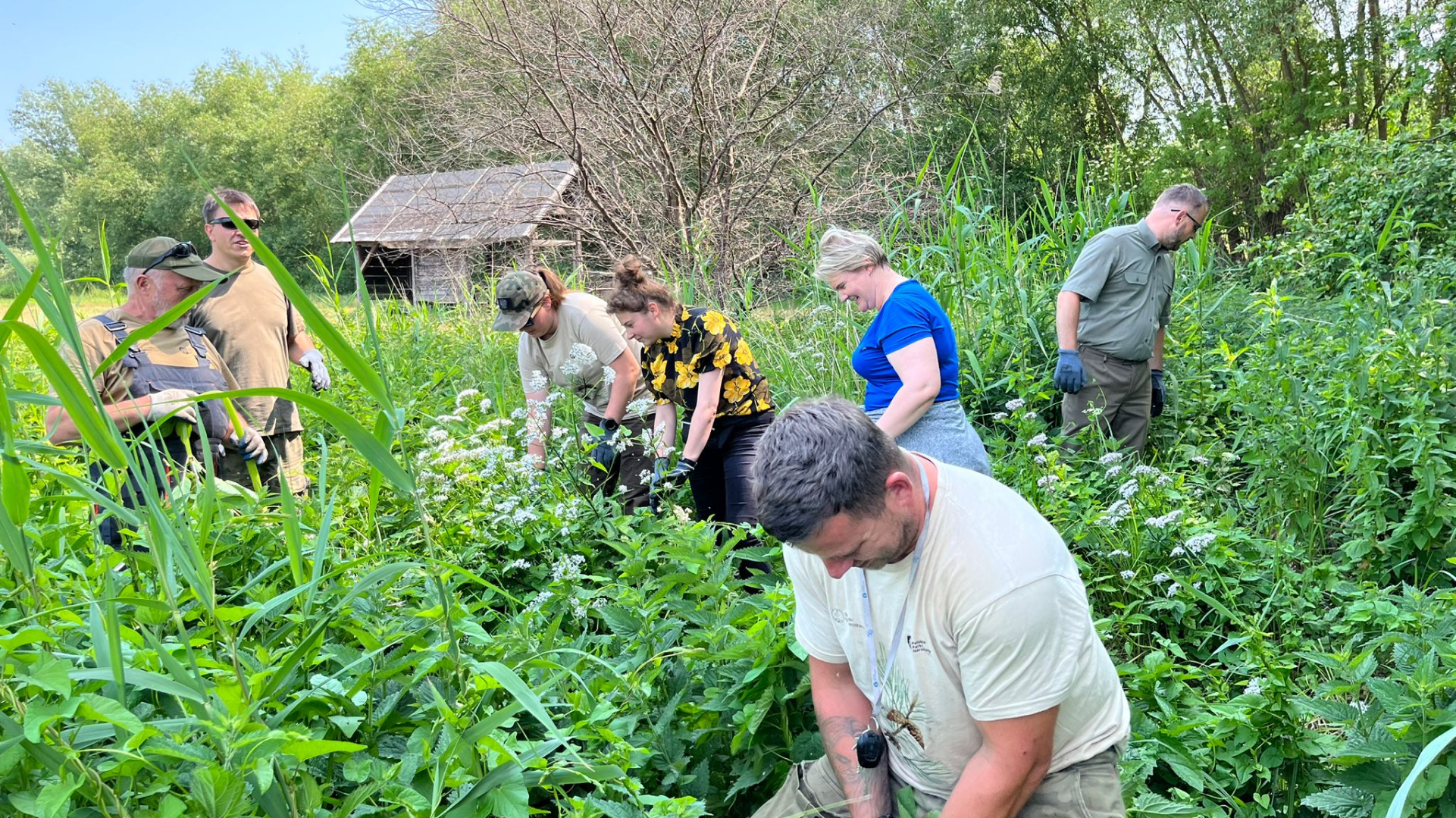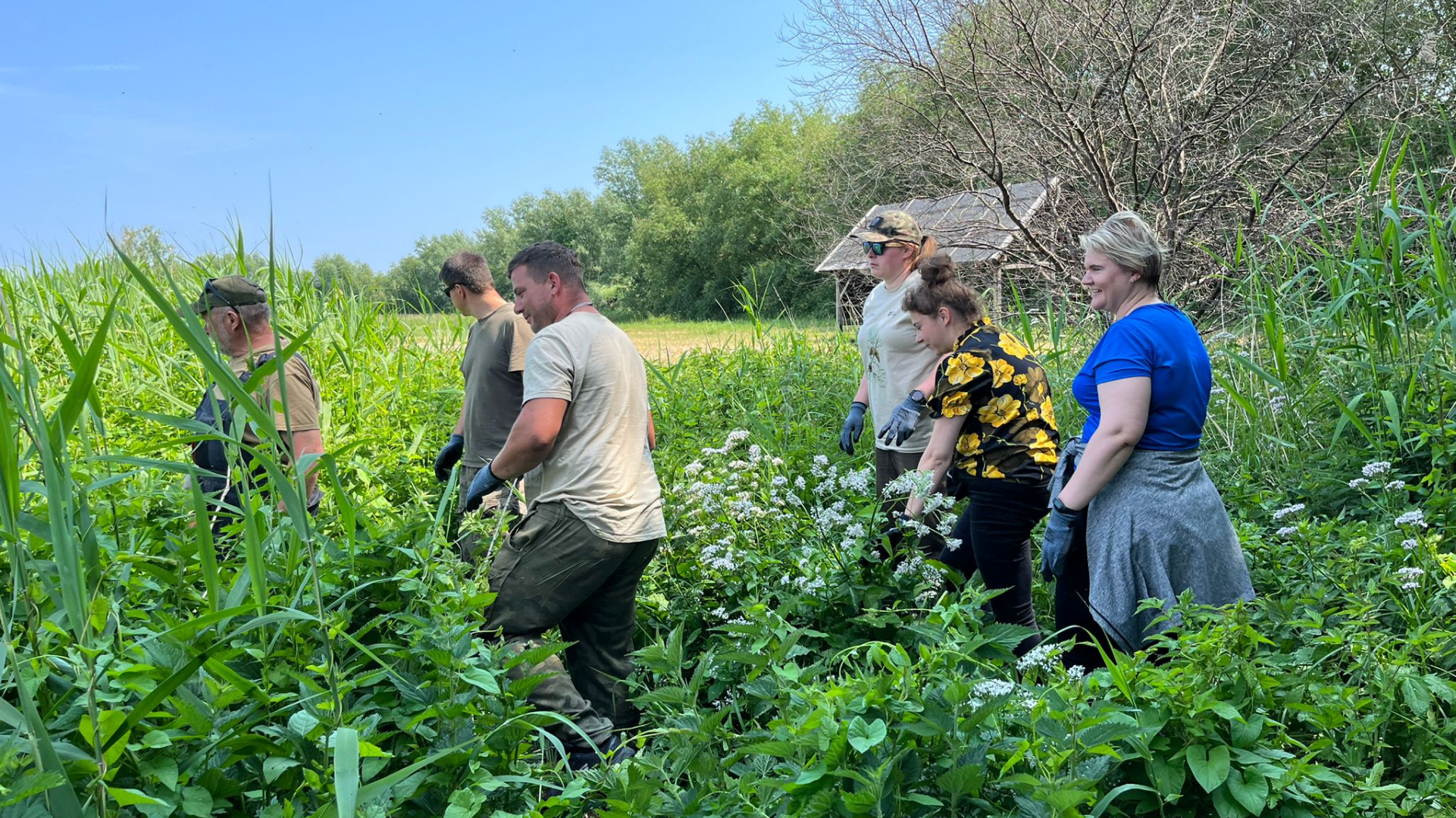- Polenergia Group
- Environment
- Society
- Management
Aware of the importance of biodiversity as the foundation of life and an important factor in the well-being of people, the environment and the climate, Polenergia is actively involved in protecting ecosystems and enhancing biodiversity. For another year, we have taken action under the Re:Generation program, which is a direct response of UNEP/GRID-Warsaw to the Decade of Ecosystem Restoration announced by the UN from 2021 to 2030.

Improving the health of ecosystems is an important part of our efforts to achieve the Sustainable Development Goals, which we are doing, among other things, through cooperation with entities such as UNEP/GRID-Warsaw, fulfilling Goal 17 – Partnerships for the Goals.
The area under protection is the Slowinski National Park – one of 23 national parks in Poland and one of 2 coastal parks, created to preserve in an unchanged state the system of coastal lakes, marshes, peat bogs, meadows, coastal forests and forests, and above all the dune belt of the spit with moving dunes unique in Europe. Its rank and natural value is evidenced by its inclusion in the international network of protected areas such as: HELCOM BSPA, UNESCO World Biosphere Reserve or Ramsar wetland.
A growing problem for the protection of the Slovinski National Park is the occurrence of invasive species that displace native species. In this way, over time, they occupy the entire ecosystem, impoverishing and destroying it. Invasive species are believed to be one of the main causes of biodiversity decline and extinction of native species.
Among plant species, the greatest threat is posed by the possible invasion and deformation of Natura 2000 habitat code 1150 (coastal lakes, lagoons) and the degradation of the natural for this habitat flora species composition, including among others, marsh fern Thelypteris palustris, yellow flag Iris pseudacorus, reed canary grass Phalaridetum arundinaceae, northern water hemlock Cicuta virosa, by himalayan balsam Impatiens glandulifera. It is one of the most invasive plants in Poland, included in the Decree of December 9, 2022 on the list of invasive alien species, posing a threat to Poland, spreading widely. On the territory of the Slovinski National Park in 2023 within the Gardno and Lebsko lakes, Impatiens were found on an area of 11 hectares. The species has been introduced into the environment by humans and is consciously cultivated in gardens, such as in Gardno Wielka. Incidentally, it enters with the soil used, for example, for the repair of dikes.



In the case of the Slovinski National Park, the invasion is not yet extensive, but 1,500 hectares of rush habitat are potentially at risk, which is why limiting the range of impatiens, combined with education and monitoring of accidental spread, is so important.
Elimination of stands of impatiens and control of its spread is a long-term measure included in the draft Protection Plan of the Slowinski National Park. The eradication of this species consists in preventing its spread by pulling out whole individuals before they bear flowers and fruit. Due to the characteristics of the species, the procedure must be repeated many times.
Activities in the active protection area in the Slovinski National Park on Lake Gardno were carried out with the support of Polenergia from June to September 2023. The work of uprooting and mowing individuals took place three times a year, thanks to which 1.5 hectares of the Park area were cleared of impatiens. The removed plants are heaped for decomposition on site. In addition to the active conservation measures, discussions were held with residents whose land is adjacent to the park area about the treatments being carried out and the invasiveness of the species being removed.
Szanowny użytkowniku, w zgodzie z założeniami RODO potrzebujemy Twojej zgody na przetwarzanie danych osobowych w tym zawartych w plikach cookies. Dowiedz się więcej.
The cookie settings on this website are set to "allow cookies" to give you the best browsing experience possible. If you continue to use this website without changing your cookie settings or you click "Accept" below then you are consenting to this.